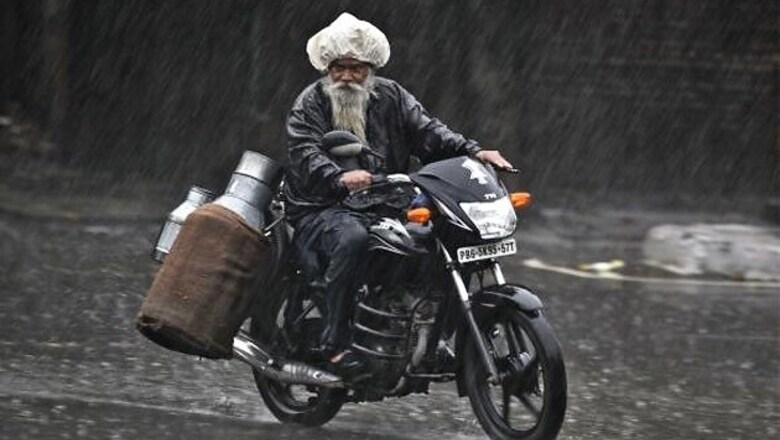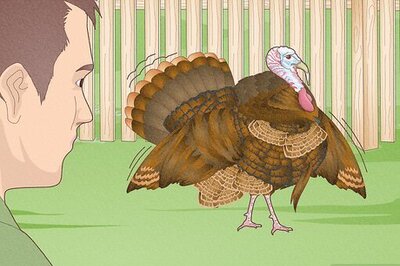
views
New Delhi: Weak rainfall in India since June when the monsoon season starts, crucial to the country's agricultural earnings, has raised concerns of a first drought in five years, although weather experts are hopeful rains will revive in the next week.
A poor monsoon cuts exports, stokes food inflation and leads to lower demand for products ranging from cars to consumer goods, while a slow start could delay exports of some crops and increase the need for imports.
Rains last week spread to soybean areas in central parts of India and cane areas in the north, but overall rains stood at 43 per cent below the seasonal average, a weather office update showed.
In 2009 the worst drought in nearly four decades forced India, the world's top sugar consumer, to buy large quantities of the sweetener from top producer Brazil, driving benchmark New York futures to a 30-year high.
The farm sector accounts for around 14 per cent of India's nearly $2 trillion economy, and two-thirds of its 1.2 billion population live in rural areas.
"The monsoon appears to be more unpredictable," Finance Minster Arun Jaitley said, presenting his maiden budget on Thursday.
India, one of the world's top producers and consumers of rice, corn, cooking oil, sugar and cotton, relies heavily on the summer rains as nearly half its farmland lacks irrigation.
The lacklustre monsoon could push up edible oil imports by the world's top palm oil buyer. That in turn could underpin benchmark Malaysian prices of the tropical oil that have plunged more than a 10th in 2014.
The 2014 monsoon arrived five days late on the southern Kerala coast, and then covered half of India four days later than the usual date of June 15. Usually, the monsoon covers the entire country around mid-July.
"The water-stressed western region is expected to receive good rainfall next week as conditions have become favourable for a revival," said M Rajeevan, a senior meteorological scientist with the Ministry of Earth Sciences.
Drought concerns
Delayed progress of monsoon rains towards the grain belt of northwest India and oilseed-growing regions of central and western India has prompted concerns about a shortfall in grains output, causing prices of some food items to rise.
Jaitley said last week there was no cause to panic about the possibility of higher inflation, after a private forecasting agency said there was a 60 per cent chance India would face a drought this year.
"Even if due to inadequate rainfall there is a marginal decline in agricultural production, stocks in the central pool are adequate to meet any exigency (emergency)," Jaitley said.
India's government under new Prime Minister Narendra Modi has moved to ease market concerns over supply shortages and price speculation with a number of steps, including raids against hoarders.
Policy makers in New Delhi fear a failure of this year's monsoon could push up retail food inflation by at least one percentage point.
Soaring prices of basic goods such as milk and potatoes lifted retail food inflation in May to 9.4 per cent and the poor monsoon has fanned fears of worse to come.


















Comments
0 comment